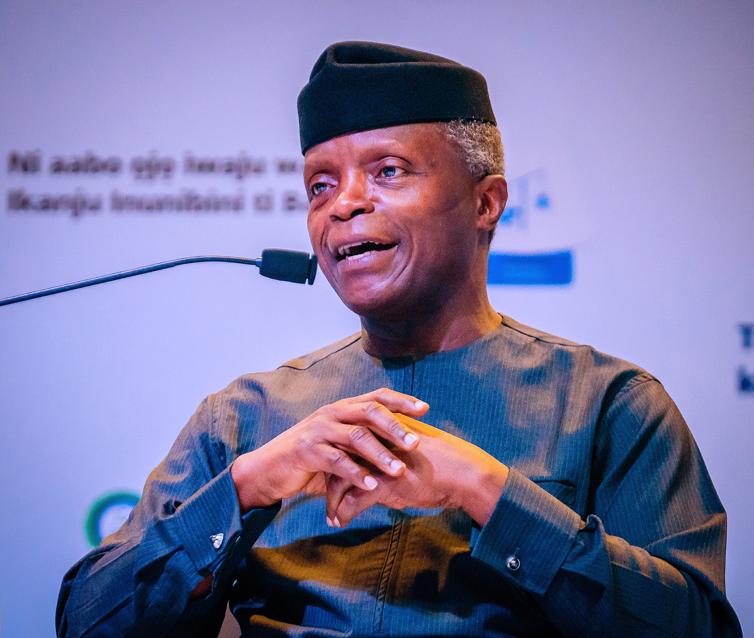
The Vice President, Yemi Osinbajo, on Monday, assured that Nigeria was committed to realising the Sustainable Development Goals also known as the United Nations’ Agenda 2030, and a similar initiative by the African Union called the AU Agenda 2063.
He also highlighted the various policy initiatives of the Federal Government aimed at achieving the SDGs and ameliorating the negative impact of the coronavirus on the nation’s economy and the populace.
Osinbajo, represented by the Minister of Finance, Budget, and National Planning, Zainab Ahmed, expressed this optimism in Abuja at the African Union continental capacity-building workshop on Africa’s voluntary national reviews for the 2022 high-level political forum and domestication of agenda 2063.
The event was jointly hosted by the Office of the Special Assistant to the President on SDG led by Princess Adejoke Orelope-Adefulire and the Nigerian office of the African Union Development Agency, New Partnership for African Development, and African Peer Review Mechanism led by Princess Gloria Akobundu.
Osinbajo said that to achieve the SDGs and its effective implementation, “Nigeria has established six SDGs innovation hubs, one in each geo-political zone; this provides an opportunity for states to leverage and dialogue with all relevant stakeholders to accelerate innovative solutions, prioritizing social protection as a tool to overcome the bottlenecks and expanding financing options to accelerate the achievement of SDGs in Nigeria.
“Permit me to let you know that since the adoption of the AU Agenda 2063 and the UN Agenda 2030, the Nigerian Government has embarked upon a process of domesticating these agendas at the national and sub-national levels.
“Interestingly, the new National Development Plan 2021-2025 has strategies that aim at achieving the targets set under each of the goals in both Agendas while the capacities of policymakers are being strengthened to ensure their implementation in an integrated and coherent manner in order to facilitate an inclusive implementation processes across all relevant sectors.”
According to him, the genesis of Agenda 2063 was the realisation by African leaders that there was a need to refocus and reprioritise Africa’s agenda from the struggle against apartheid and the attainment of political independence for the continent.
The VP added that Agenda 2063 was equally an arrangement that prioritises inclusive social and economic development, continental and regional integration, democratic governance, peace, and security, among other issues.
“The objective of which is to reposition Africa to becoming a dominant player in the global arena,” the VP said.
Orelope-Adefulire explained that the event, which was a follow-up to similar ones held in Addis Ababa, Kigali, and Djibouti, formed part of efforts to fast-track the achievement of the SDGs and Agenda 2063 in African countries.
She said that Nigeria had recorded significant progress in the implementation of the SDGs in many areas, including supporting the 36 states and the Federal Capital Territory to prioritise and mainstream the SDGs into their medium and long-term development policies and plans.
Akobundu said that the event was intended for African countries to share experiences and learn from each others on the implementation of the United Nations’ Agenda 2030 and the AU’s Agenda 2063, and how best to mitigate the impact of COVID-19 on the populace.
“At the end of the day, the outcome of this event will be presented at the HLPF come June 2022 at the United Nations,” Akobundu said.
Copyright PUNCH.
All rights reserved. This material, and other digital content on this website, may not be reproduced, published, broadcast, rewritten or redistributed in whole or in part without prior express written permission from PUNCH.
Contact: [email protected]




